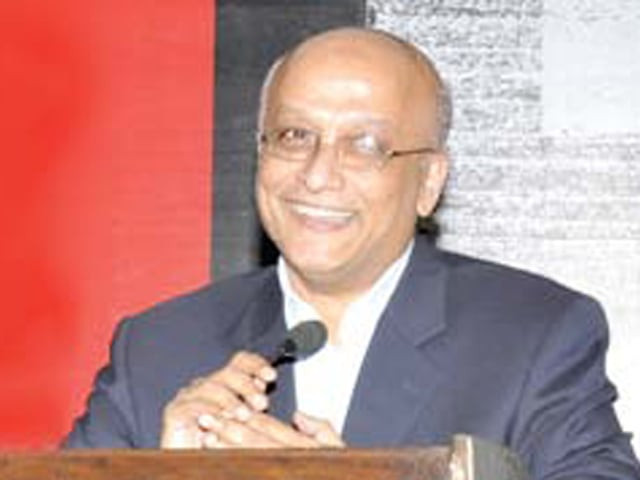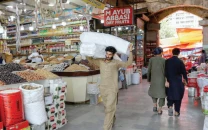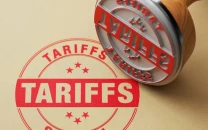Taxing times: ‘RGST will raise prices across the board’
Urban centres to drive demand for packaged products: Engro Foods CEO

“Even the prices of items that are not taxable under the intended levy, like wheat, will go up,” predicted Rehman during an interview with The Express Tribune. He explained that the proposed tax will have a two-pronged effect on the market for consumer goods: higher prices will negatively affect consumers’ ability to purchase products and increased requirements for documentation may act as a disincentive for some retailers.
Nonetheless, the CEO was hopeful that demand for the company’s products is not likely to be significantly impacted. “But it is an unknown and its effects will have to be monitored closely,” he was quick to add.
Public listing: bumps along the road
Engro Corporation had initially planned to offer EFL shares to the public by 2011 but it has yet to make headway on this front. Rehman insisted the company’s performance was not to blame: “We are profitable despite incurring heavy expenses on the advertising of brands like Omore and Tarang.”
Instead, he blamed economic uncertainty and rising food prices for the delay in listing at local bourses. He explained that the company had to consider exogenous factors such as investment climate and overall consumer confidence.
Meanwhile, EFL has also been planning to diversify into the grains business. For now, the Engro Corporation has entered this market through a separate business entity, Engro Eximp Private Limited, which operates in the business-to-business category.
“Given our expertise in the food business, EFL is supporting Eximp in managing its supply chain,” said Rehman. He added that whenever the company expands its grains business to the consumer market, the move will be made through EFL. He, however, declined to issue a timeline for when this would happen.
The challenge of managing supplies
“Supply chain management is the biggest challenge to expanding our business,” said the CEO. Referring to the recent floods in the country he said that the lack of organised research and data from the government has still kept much of the damage undocumented. “We have learned to live with this. We conduct our own studies in the areas where we operate.”
Rehman said that supplies of milk fell by 10 to 15 per cent during the flooding and prices have increased by Rs5 since July. He added that the supply of fodder has declined in the wake of the deluge, which has in turn driven down dairy production.
To overcome supply-side constraints, EFL started its own dairy farm back in 2008. Rehman expressed hope that this practice would gain ground in the country. “There are already 30 to 40 dairy farms in the country and although their contribution to overall production is quite limited, a trend has started to emerge.”
Greener pastures
“Urbanisation necessitates a shift towards packaged products,” asserted Rehman. He explained that growing populations in the country’s urban centres are expected to drive demand for products like Olpers, the company’s premier milk brand.
Although he admitted that it was difficult to sell packaged milk in rural areas, Rehman was optimistic that the pasteurised businesses would prop up in all areas of the country in no time. He also seemed at ease about increased competition from new entrants in the dairy business citing high barriers to entry and the advantages of significant economies of scale.
Rehman, who has served in various capacities at Pepsi, Unilever and GSK, prior to assuming the helm at EFL, has big plans for the home-grown company. “We want to open up the rural areas to organised business.”
He asserted that farmer incomes have grown exponentially in areas where the company has established sourcing operations and said that the introduction of dairy farms can help develop the dairy sector through long-term partnerships between rural communities and the corporate sector.
Rehman also expressed the hope of using the strengths of Pakistan’s agriculture-based economy to enter basic food markets in other countries.
Published in The Express Tribune, December 19th, 2010.



















COMMENTS
Comments are moderated and generally will be posted if they are on-topic and not abusive.
For more information, please see our Comments FAQ